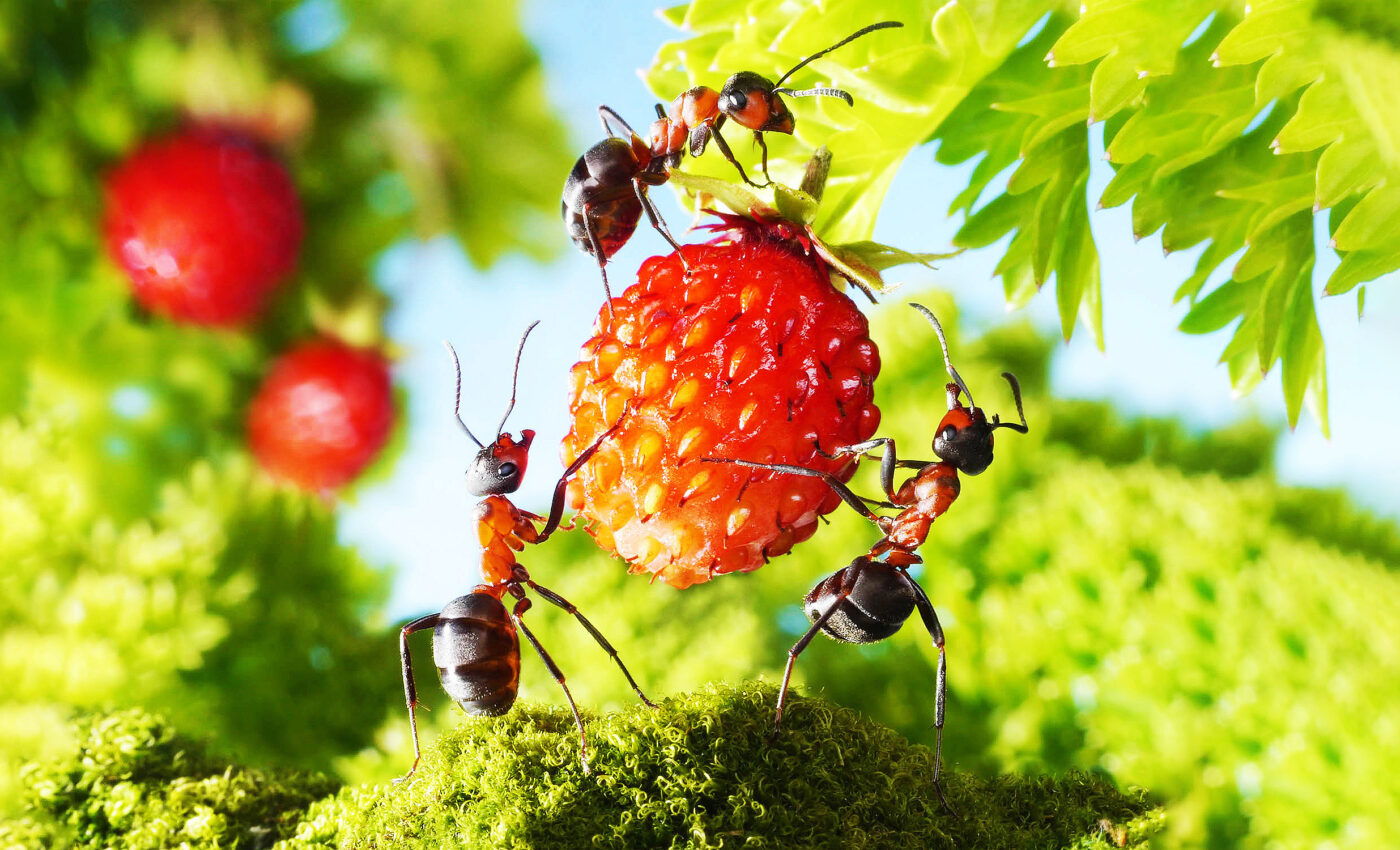
Ants given caffeine do an even better job of locating food
The humble ant, a creature known for its tireless work ethic and impressive navigational skills, may have just found a new way to up its game: caffeine.
Recent research has revealed that a dose of caffeine can significantly enhance an ant’s foraging efficiency, leading to faster and more direct paths to food sources.
Buzz on caffeine and cognition
Caffeine, the ubiquitous stimulant has long been known to affect humans and animals alike. It boosts alertness and energy in people, helping them start their day or power through the afternoon slump.
Similarly, animals experience changes in behavior and physiology when exposed to caffeine. Research has also revealed its potential to enhance cognitive functions such as learning and memory in bees.
Intrigued by these findings, computational biologist Henrique Galante at the University of Regensburg decided to investigate whether caffeine could similarly boost the foraging abilities of a less-studied species: the Argentine ant.
These ants are a notorious invasive species, wreaking havoc on ecosystems and economies worldwide. Galante’s research aimed to explore whether caffeine could potentially be leveraged as a tool to control these troublesome insects.
Ants on a caffeine kick
To test their hypothesis, the researchers set up a clever experiment involving ants and a Lego drawbridge, a sugary reward, and varying concentrations of caffeine.
The ants were tasked with navigating a testing platform to reach the reward, which was laced with different levels of caffeine (ranging from 0 to 2,000 parts per million).
Using an automated tracking system, the researchers meticulously monitored the ants’ speed, path directness, and foraging time.
They found that ants given low to intermediate doses of caffeine (25 and 250 ppm) became significantly more efficient at locating and relocating the reward.
“The lowest dose we used is what you find in natural plants, the intermediate dose is similar to what you would find in some energy drinks, and the highest amount is set to be the LD50 of bees — where half the bees fed this dose die — so it’s likely to be quite toxic for them,” says Galante.
Remarkably, the caffeinated ants achieved this increased efficiency not by moving faster, but by taking more direct paths.
“What we see is that they’re not moving faster, they’re just being more focused on where they’re going. This suggests that they know where they want to go, therefore, they have learned the locations of the reward,” explains Galante.
Pest control potential
This discovery has significant implications for pest control efforts. Argentine ants are a major invasive species, causing widespread ecological damage and incurring billions of dollars in economic costs annually.
Traditional control methods, such as poison baits, have often proven ineffective due to low bait uptake and abandonment.
Galante and his team believe that incorporating caffeine into ant baits could revolutionize pest control strategies.
“We’re trying to make them better at finding these baits, because the faster they go and come back to them, the more pheromone trails they lay, the more ants will come, and, therefore, the faster they will spread the poison in the colony before they realize it’s poison,” he says.
Future directions
While this study’s results are promising, further research is needed to understand the relationship between caffeine and ant behavior.
The researchers are conducting field tests in Spain which will assess the effectiveness of caffeine-laced baits in natural settings.
They also plan to investigate interactions between caffeine and the bait poison. This additional research will help determine the real-world applicability of their findings.
Understanding these interactions is crucial for developing effective ant control methods. The team’s ongoing work aims to provide comprehensive insights into the use of caffeine in managing invasive ant species.
Caffeine, ants and pest control
If future research confirms this study’s findings, we could see new pest control strategies using caffeine to manipulate insect behavior. Imagine ants leading their entire colonies to their doom, all thanks to a caffeine boost.
While this may sound like science fiction, Galante and his team’s research suggests it could soon become a reality. This approach would revolutionize pest control, making it more efficient and effective.
The potential to harness caffeine for managing invasive species is both exciting and promising. We may soon witness a significant shift in how we handle pest infestations.
In the meantime, we can marvel at the intricate ways in which caffeine influences the animal kingdom, from enhancing our own cognitive abilities to transforming ants into super foragers.
Who knows what other surprising discoveries await us as we continue to explore the fascinating world of caffeine and its effects on the natural world?
The study is published in the journal iScience.
—–
Like what you read? Subscribe to our newsletter for engaging articles, exclusive content, and the latest updates.
Check us out on EarthSnap, a free app brought to you by Eric Ralls and Earth.com.
—–













